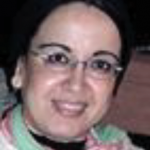Abstract
This study attempts to shed light on the gendered aspect of MSEs (i.e. how the sectors of activities, income, growth, etc. differ by the gender of the entrepreneur) and tests some of the main claims of the rather modest available literature by means of an econometric analysis. The empirical work utilizes nationally representative MSE surveys conducted for Turkey and Egypt in 2001 and 2003 respectively (for brevity, we hereafter use “E&T” to refer to “Egypt and Turkey”). The working sample has 4136 and 4238 permanent establishments located in the urban areas of Egypt and Turkey, respectively. By identifying the sectors and types of activities females are more likely to thrive in, this study calls attention to those sectors where direct intervention by the government will be more effective, and provide some guidance for making proposals to further reduce the extent of gender-differences and practices in MSEs.
Arabic Abstract:
تحاول هذه الدراسة القاء الضوء على المظاهر الخاصة بالنوع الإجتماعي للمشروعات متوسطة الحجم (كيف تختلف قطاعات الأنشطة والدخل والنمو تبعاً للنوع الإجتماعي لصاحب المشروع. وتختبر هذه الدراسة ايضاً بعض الأدعاءات الأساسية للأدبيات المتواضعه المتاحة عن طريق تحليل يقوم على الإقتصاد القياسي. وقد استخدم هذا العمل التجريبي إستقصائات على الصعيد الوطني للمشروعات متوسطة الحجم تم إجرائها في تركيا ومصر في 2001 و 2003 على التوالي (وللإختصار سوف نستخدم حرفي E&T فيما بعد للإشارة الى مصر وتركيا). قد فحصت عينة العمل 4136 و 4238 موجودة في المناطق العمرانية في مصر وتركيا على التوالي. وبعد تحديد القطاعات وأنواع الأنشطة٬ التي يحتمل أن تتفوق فيها النساء، تلفت الدراسة الإنتباه إلى القطاعات التى تكون التدخلات الحكومية المباشرة فيها أكثر تأثيرا وتساعد كدليل على طرح الإقتراحات لتخفيض مدى الإختلافات والممارسات المتعلقة بالنوع الإجتماعي في المشروعات متوسطة الحجم مستقبلاً.

Research Fellows
Fatma El-Hamidi
Visiting Lecturer, Economics Department, University of Pittsburgh

Research Fellows
Cem Baslevent
Professor, Department of International Trade and Finance,...


